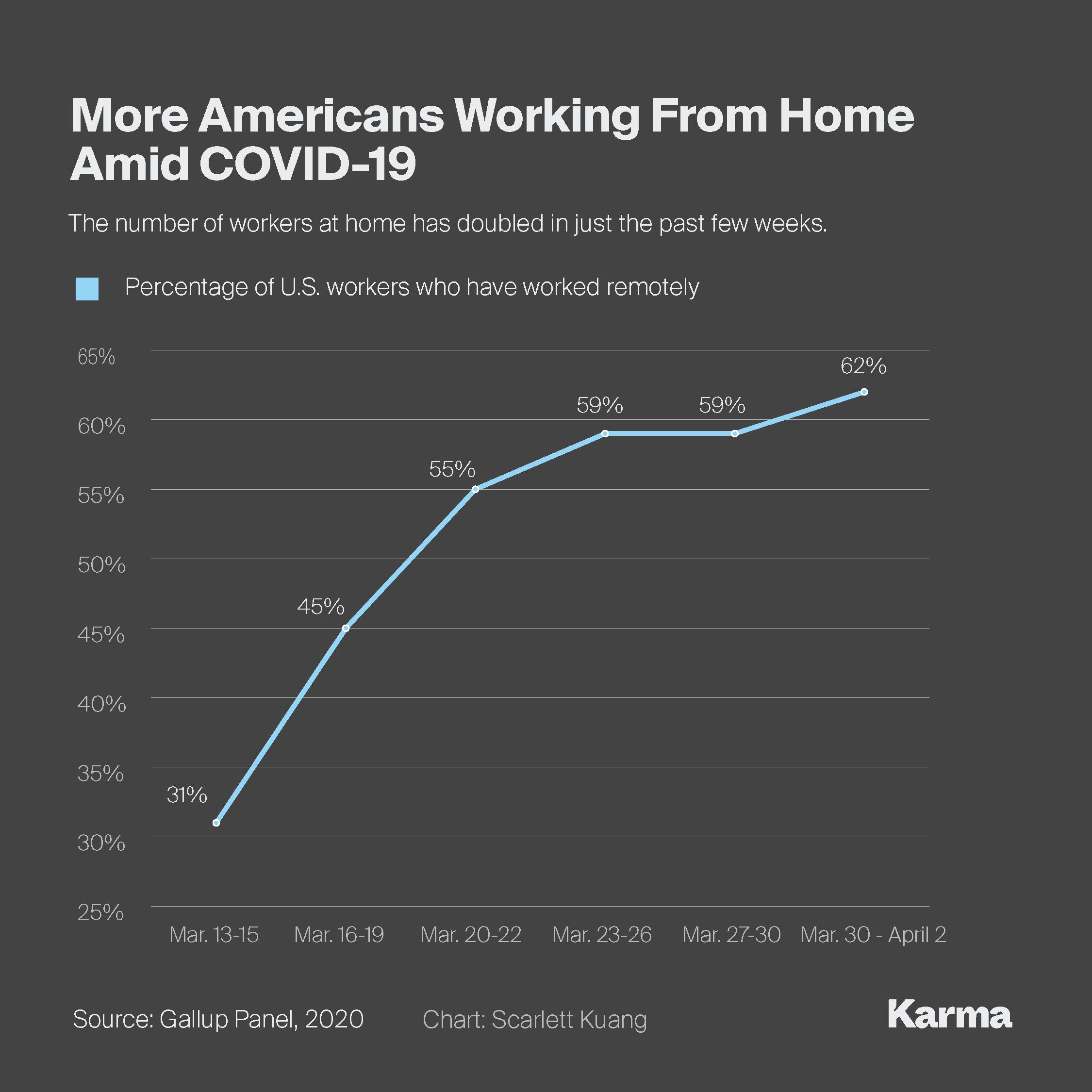- Millions of Americans are working from home for the first time because of the COVID-19 pandemic, and some won’t return to offices when the pandemic has faded.
- Investments have been made, and skills learned that will allow people to continue doing their jobs from home.
- Some technology companies are poised to benefit from the increase in working from home, Jefferies said.
When the COVID-19 outbreak’s unplanned experiment in telecommuting is done, you may be one of those who never work in an office again.
Industries where telework is possible have made quick investments as governments limit travel to essential duties, a Brookings Institution study found. Workers are getting comfortable with remote technology, permitting more jobs to be performed at home, the study said. Once the crisis passes, the total number of full-time employees operating from home — currently about 5% of the U.S. workforce — may double, financial-firm Jefferies wrote in a note this week, according to CNBC.
“It’s safe to say that more than the 5% who worked at home before the crisis will continue to do so after this is over,” Joseph Kane, a senior research associate at the Brookings Institute, told Karma. “What we are dealing with is an unprecedented event. Working from home has spiked over the last few weeks.”

Roughly 37% of U.S. jobs can be performed from home, according to a recent report from the National Bureau of Economic Research. An MIT survey of 25,000 American workers found that 34% of Americans who previously commuted said they were working from home by early April. A recent Gartner survey of CFOs also backs up the trend, with respondents saying that more than 5% of workers who had previously worked in company offices will permanently work at home when the crisis is over.
Workers who can do their jobs at home tend to be better paid, and concentrated in a handful of cities including the San Jose and Washington D.C. areas, the NBER report says. Most jobs in finance, corporate management, and professional services can be performed from home, but few workers in agriculture, retail and hospitality have the option. More than 45% of jobs in San Francisco and Washington, D.C., can be performed at home, while in Las Vegas and Grand Rapids fewer than 30% can do the same.
As many as 62 million workers were employed in essential industries prior to the COVID-19 outbreak, using the Department of Homeland Security’s definition, according to Brookings.
“Certain types of people have the luxury of working from home and they tend to be wealthier people,“ Kane said. “That fact remains that some workers won’t have the opportunity. Four out of five essential workers won’t have the option to work from home.”
There are a number of pluses to telework that will encourage a permanent shift to the practice. People tend to prefer working from home, it cuts office and transportation costs and helps some people balance work and family obligations, Brookings’ Katherine Guyot and Isabel V. Sawhill wrote. The growth in telework will help the environment and infrastructure as it curbs emissions and pressure on transportation, McKinsey reported recently.
Companies are getting an opportunity to see that employees need to balance work and family responsibilities, and hopefully will lead to flexibility that will help with this, according to the Harvard Business Review.
There are also downsides to working from home. Some companies find managing workers who are telecommuting difficult and isolation can have negative effects on mental health and career advancement. The jury is out on what the long-term impact will be on productivity.
A new report by analysts at Jefferies argues that corporate America might decide that telework is more productive, cost-effective and the wave of the future. Technology companies will be the primary beneficiaries, according to the report. Amazon, Broadcom, Ciena and Best Buy are some of the companies that could benefit.
“There’s been a grand experiment, and some businesses, and some workers, will prefer to continue working from home when this is over,” Kane said. “I would guess that we’ll see more working from home in the longer term, but the Indicators are lagging, so we won’t know for sure for another year.”






















